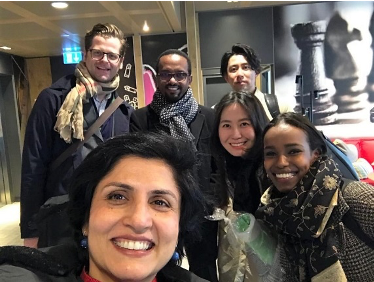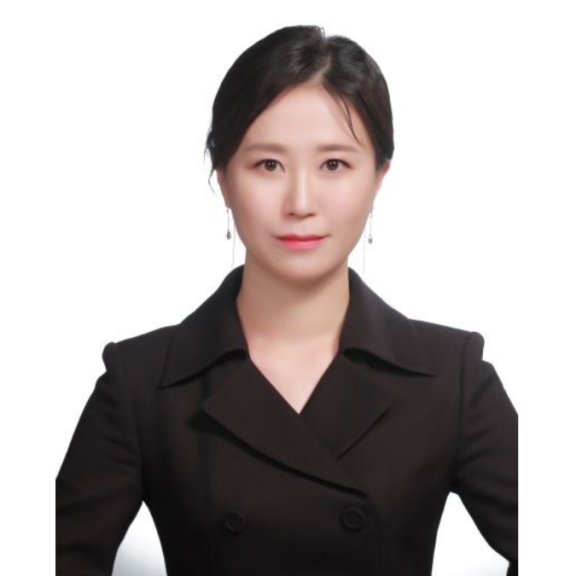Vertical and horizontal work cultures: A first-hand account
On my third day working at the Independent Evaluation Unit (IEU) of the Green Climate Fund (GCF), I found myself supporting my director at a GCF Board meeting in Geneva.
The GCF is the United Nations’ biggest climate fund and is based in Songdo. As a newcomer, my first time at a GCF Board meeting was quite nerve-racking. During a short break, I remained in the meeting room to take care of some urgent tasks. My director left the room and then completely surprised me by returning with a cup of water for me to drink. That instant, I was awestruck. I should have gone out to bring water to her, not have her bring water to me! I quickly blamed myself for not having done so, but it soon became evident that my director saw it as something she could do for her team members. One of her favourite sayings is that she is “sitting on the shoulders of giants” and that the only thing she can take credit for is the job of having put together a great team of talented and dedicated individuals. In essence, she calls all her team members “giants” regardless of their rank or job title.
Even when I offered to help carry her wheeled suitcase to the meeting venue, she said no need and walked out the hotel door briskly with her laptop and suitcase. I was again awestruck when she called for a meeting in which she rehearsed her presentation and asked the IEU team to be “brutal” in giving our feedback so that she could prepare well for the Board meeting. Having a boss who asks the staff to be “brutal” in giving comments was rather new to me (and I worked for different UN agencies and Korean entities before the GCF). I actively participated in this exercise with many questions for my director, and she was indeed well prepared for the Board meeting and thanked us all for our feedback afterwards.
IEU Director Dr. Jyotsna Puri (front) and me (third in the second row) in Geneva
The image of my boss bringing water and asking for tough feedback was juxtaposed with the image of ‘superiors’ prevalent in other more hierarchical workplaces around the world, including those in Korea. A few years ago, a Korean politician returning from overseas travel was seen pushing his wheeled suitcase to his assistant without even looking at the person. The video went viral at that time and was quickly dubbed as the “no-look passing” incident.
While such attitudes are changing surely and gradually, it is still very much the norm in Korea for those in more senior positions to look at other team members in junior positions as subordinates. The “no-look pass” incident mentioned above stirred up a big debate about the excessive emphasis on protocol.
Growing up in Korea, the notion that those who are younger and less experienced have less to offer was widely accepted. It was an unwritten rule that young people should keep quiet and listen to the adults in the room. As a result, this mindset often left less space for engagement and debate. For instance, it was unthinkable to raise my hand and ask questions at school because we were told to simply jot down what the teacher was writing on the blackboard.
For this reason, I was pleasantly surprised to see my former supervisors at the UN climate change secretariat in Germany calling everyone, including the interns, “colleagues” with respect and recognition. Also, when I joined the IEU of the GCF earlier this year, my director again surprised me by saying that the team does not have an organigram of hierarchy but a horizontal “mentor-gram”. The IEU’s mentor-gram shows who mentors who on the team, and asks the mentors to “make the mentees shine and grow”.
Amy Edmondson, in her book “The Fearless Organization”, talks about how important it is to create a work culture where it is safe to express ideas, ask questions and admit mistakes in today’s knowledge economy. I do think that my current team has a culture of psychological safety: my thoughts and ideas are valued at work, and I feel I can achieve greater things. Work has never been so fun and empowering, thanks to an exceptional team culture that values and nudges everyone to excel.
When working for different entities, including government agencies and media, in the early years of my career, I lived with constant fear – fear that I might say or do something stupid in the eyes of my superiors and get crushed for such behaviour. But because now I do not need to be afraid of sharing my ideas and asking questions, less energy is spent on worrying about things, and I get to focus more on trying new things and delivering quality work. My current workplace is a safe place for testing new ideas – which Dartmouth Professor Sydney Finkelstein also says is an attribute of firms and organizations led by “Superbosses”. One day, I hope to be a “superboss” myself leading a fearless and horizontal organization where ideas and questions are welcome, and all team members are treated with respect and appreciation.
This post first appeared in the August 13th edition of the Korea Times.
Disclaimer: The views expressed in blogs are the author's own and do not necessarily reflect the views of the Independent Evaluation Unit of the Green Climate Fund.

